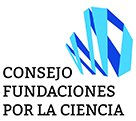“A reflection on the position of biomedical journalism today.” This sentence could summarize the philosophy of the last meeting organized by the Esteve Foundation in collaboration with the Observatory of Scientific Communication of the Pompeu Fabra University of Barcelona. The meeting was held last 7th of October in S’Agaró, Girona, and was divided in three distinct topic submissions which led to further discussion among the 28 participants.
Gemma Revuelta, from the Observatory of Scientific Communication, opened the meeting by exposing the different information sources available. By means of different studies and surveys, she succeeded in questioning a few assumptions still in force today. For example, that the media have a leading role in society as sources of information on scientific topics. Quite the contrary: media, governments and political parties are at the bottom of the population’s confidence, and society prefers the information supplied by medical or healthcare organizations or by institutions like the universities. Another disproved topic: ‘television meets the demand of the new audiences’. Rather, these require more direct, individualized information and prefer active search, preferably through the Internet.
On his part, Erik Cobo, from the Department of Statistics and Operative Research of the Universitat Politècnica de Catalunya, attempted to detail some of the more common mistakes made by the media in the interpretation of statistical data. For that purpose, some of the key concepts in statistics were specified and the results usually provided by this science were put into perspective. Mr. Cobo stated that scientific truths do not exist. Instead, we are always faced with models that, as such, are mere approximations to reality and susceptible of being improved. The extent to which statistical data can be extrapolated to the external populations was also put in question.
Finally, Rafael Bravo, from the Sector 3 healthcare center of Getafe, disserted on the revolution brought about by the Internet. Besides enumerating the advantages of this recent communication tool, such as improved accessibility, he also underlined some of its drawbacks, such as the doubtful quality of scientific information. According to Dr. Bravo, it is not that the quality found on the Internet differs from that of other media, but rather that access to information is much easier and therefore involves consulting all kinds of (quality and nonquality) information. Therefore, the question of whether the information edited in the Internet should be controlled or validated was raised.
Obviously, all three submissions generated many opinions among the 28 attendants to this meeting –scientists and representatives of several media and communication agencies. Both the discussions and the contents of the three submissions will be included in a coming issue of the Esteve Foundation Booklets.











